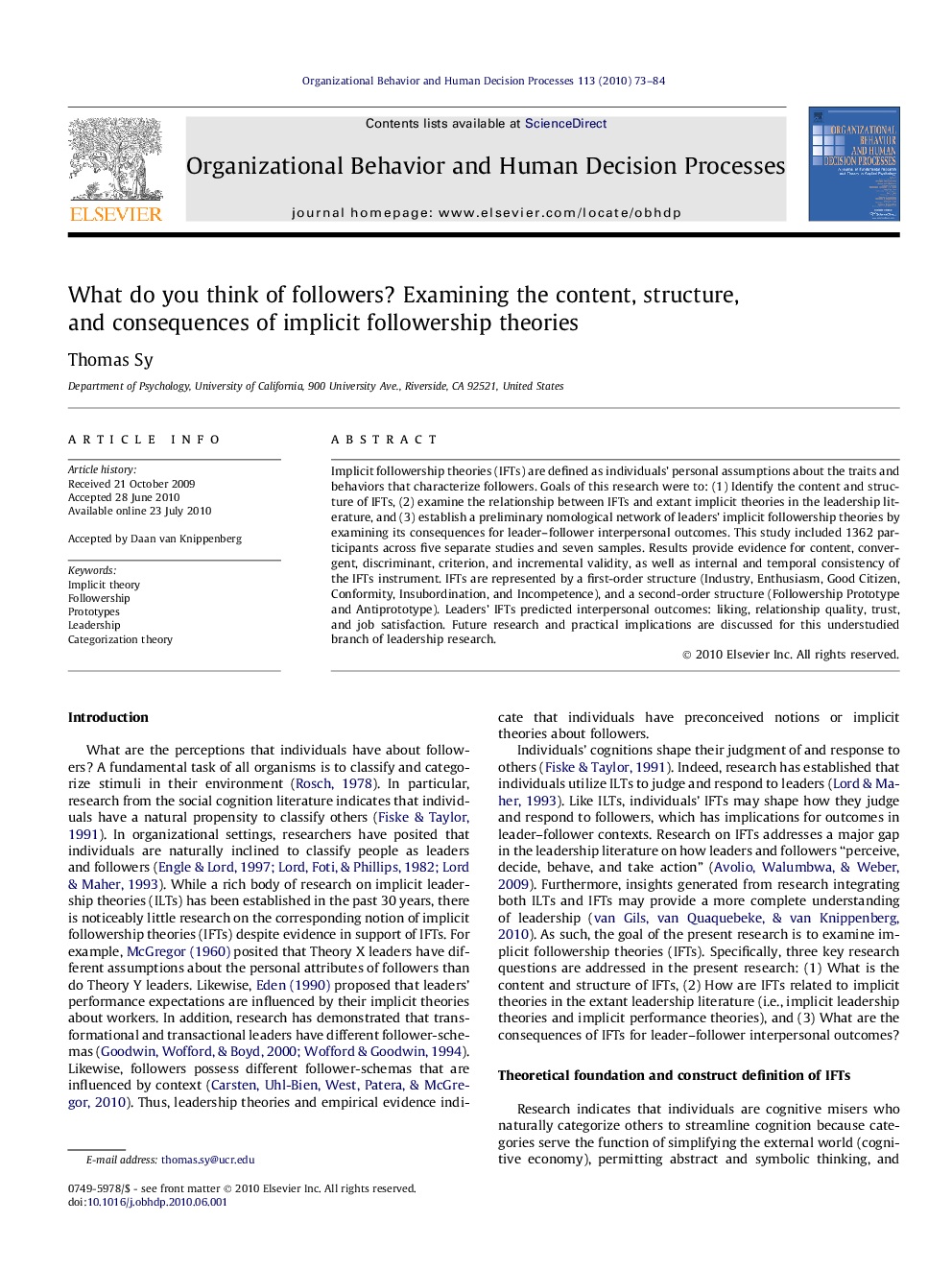| Article ID | Journal | Published Year | Pages | File Type |
|---|---|---|---|---|
| 888804 | Organizational Behavior and Human Decision Processes | 2010 | 12 Pages |
Implicit followership theories (IFTs) are defined as individuals’ personal assumptions about the traits and behaviors that characterize followers. Goals of this research were to: (1) Identify the content and structure of IFTs, (2) examine the relationship between IFTs and extant implicit theories in the leadership literature, and (3) establish a preliminary nomological network of leaders’ implicit followership theories by examining its consequences for leader–follower interpersonal outcomes. This study included 1362 participants across five separate studies and seven samples. Results provide evidence for content, convergent, discriminant, criterion, and incremental validity, as well as internal and temporal consistency of the IFTs instrument. IFTs are represented by a first-order structure (Industry, Enthusiasm, Good Citizen, Conformity, Insubordination, and Incompetence), and a second-order structure (Followership Prototype and Antiprototype). Leaders’ IFTs predicted interpersonal outcomes: liking, relationship quality, trust, and job satisfaction. Future research and practical implications are discussed for this understudied branch of leadership research.
